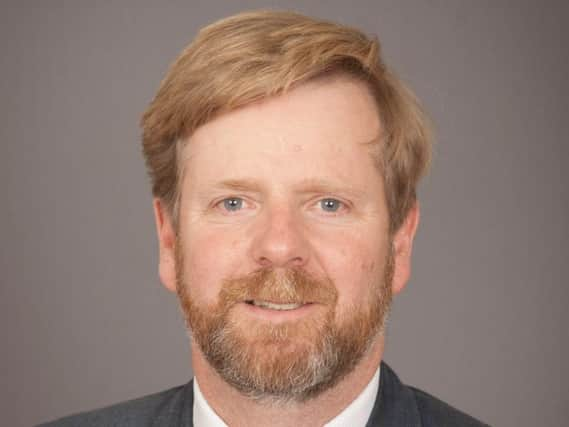Approval for cuts to council-tax support in Northumberland


The Conservative administration maintains that this leaves those affected far better off than if the previous Labour council had regained power last year, given that proposals had been drawn up to cut the support by over five times as much – 50 per cent, it has been claimed.
Labour councillors denied this when the issue sparked a row at the full council meeting last month and there has been some fiery criticism of the proposals, however, the results of a six-week consultation show that of the 512 respondents, 51 per cent agreed with it.
Advertisement
Hide AdAdvertisement
Hide AdAt its meeting on Wednesday (December 19), Northumberland County Council’s cabinet agreed a reduction in the level of council-tax support for working-age claimants to 92 per cent. The current scheme provides up to 100 per cent, meaning that some households pay no council tax.
Coun Richard Wearmouth, cabinet member for economic development, said: “I think it is a quite significant achievement to maintain this at 92 per cent. That hasn’t been achieved by nine other Labour local authorities in the North East.”
Coun Nick Oliver, cabinet member for corporate services, added: “We have taken the approach in this budget process, where possible, to protect front-line services and protect support for residents.
“But we have to address recurrent things in a recurrent way.”
Advertisement
Hide AdAdvertisement
Hide AdReferring to the debate at Monday’s (December 17) meeting of the corporate services committee, where Coun Malcolm Robinson described the cut as a ‘blunt instrument’ and suggested delaying it, Coun Oliver said: “Deferral was a well-made point, but the reality is we have to find the savings now.”
At that meeting, Coun Oliver explained: “It’s not something we do lightly, but we are looking to make £36million of savings over the next three years and looking at all areas of council spending.
“This will represent less than three per cent of those savings and other areas are being asked to make more stringent cuts.”
He also highlighted that the consultation showed that the alternatives – increasing council tax across the board, finding savings elsewhere or using savings – were far less popular.
Advertisement
Hide AdAdvertisement
Hide AdCoun Oliver added that none of these options was really viable either given that council tax is to go up by 2.99 per cent anyway, all areas of council spending are already facing cuts and that savings can only be spent once, while this is a recurring cost.
An eight per cent reduction will reduce the cost of the scheme by £1.2million and, based on an anticipated collection level of 83 per cent over time, would generate additional council-tax receipts of £1million.
To a typical band A property, the change would mean a council-tax bill of £98.55 per year for a couple/family or £73.91 for a single person.
There is no change proposed to the scheme for pensioners which is prescribed by the Government and not at the discretion of local authorities.
Ben O'Connell, Local Democracy Reporting Service